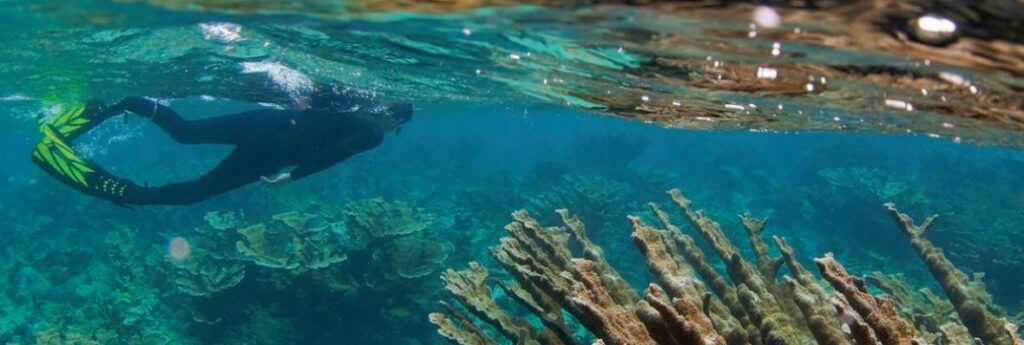At what is being called a critical time for economies and the ocean, The Nature Conservancy, the Caribbean Hotel & Tourism Association, and the United Nations Environment Program have joined forces to create, for the first time in the Caribbean, a guide to coral reef restoration designed specifically for the tourism sector.
Stating that healthy coral reefs are essential for the Caribbean tourism industry, which drives local economies and supports hundreds of thousands of livelihoods throughout the region, the partners have produced “A Guide to Coral Reef Restoration for the Tourism Sector,” which presents coral restoration best practices backed by scientific research, practitioner experience and stakeholder input.
The guide addresses barriers that, up until now, have hindered the Caribbean tourism sector from substantively engaging in efforts to conserve the very marine environments that draw millions of visitors to the region each year.
It also reveals key opportunities for the industry during a critical time – when developing sustainable tourism practices not only helps to reverse years of degradation of Caribbean reefs, but also helps tourism-dependent businesses to survive and prosper after the economic fallout of COVID-19.
The organizations, along with the Caribbean Alliance for Sustainable Tourism (CAST), which CHTA founded in 1997 to assess the tourism industry’s readiness, needs and willingness to play a more proactive role in managing, protecting, and improving coral reefs throughout the Caribbean, teamed up on the ground-breaking collaboration.
The guide was developed following months of surveys and discussions with Caribbean tourism industry stakeholders.
“TNC, UNEP, CHTA and CAST developed these new guidelines because we recognized that the tourism sector has an excellent opportunity to amplify coral conservation,” says Ximena Escovar-Fadul, TNC’s Senior Associate, Ocean Planning and Mapping. “In response to the coral reef crisis, there has been a shift on the part of tourism businesses and consumers toward more sustainable travel options.
“Beyond this ‘do no harm’ mindset, there is an increasing interest in travel activities that can proactively help nature. For example, travellers want to know how they can offset their carbon emissions or take part in restoring the environments that bring them joy when visiting a destination, like coral reefs.”
“Coral reefs and the important ecosystem services they provide are critical for economies and communities throughout the wider Caribbean,” adds UNEP’s regional co-ordinator Ileana Lopez. “They generate more than US$8 billion per year for the tourism industry, but they are under serious threat. It is estimated that over half of the live coral in the region has been lost in the last 50 years. “The restoration of degraded coral reef ecosystems is only possible when political and financial support, scientific innovation and active participation of local stakeholders is combined.”
In recent years, TNC and its partners have pioneered research to reveal the important connection between tourism and ocean resources – and to elevate the ways in which effective conservation can ensure this relationship is productive and sustainable into the future.
CHTA President Nicola Madden-Greig believes now is a particularly important time for tourism to play a vital role in ocean conservation. She explains, “Tourism in the Caribbean, and around the world, suffered a devastating downturn with the pandemic. But as the industry regains its footing, there is a key window of opportunity to attract a wider group of consumers and protect the resources tourism depends on by offering sustainable travel options and engaging in meaningful conservation. This is where guidance from our conservation partners becomes pivotal.
“Many tourism businesses are adopting a sustainable approach and would like to actively contribute to coral conservation, but they don’t have the technical expertise. Or they completed a pilot reef restoration project but lack the capacity to scale up the work. As we continue to share scientific research and best practices, and to address the conservation challenges facing the tourism sector, CHTA and CAST aim to transform travel in the Caribbean, so it not only exists in harmony with our natural world but also benefits it.”

